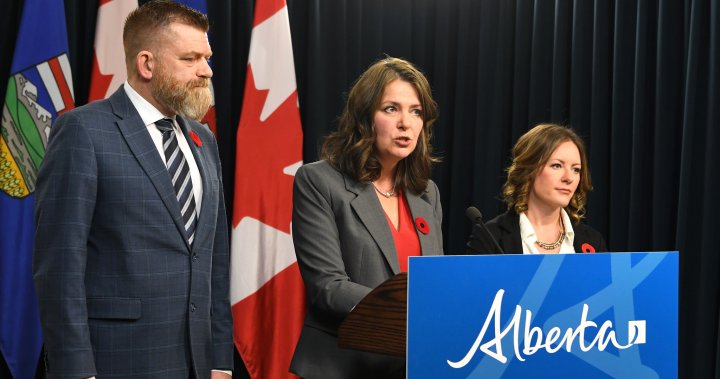Alberta Premier Danielle Smith expressed anger and frustration over Ottawa’s new greenhouse gas emissions cap, calling it a violation of Canada’s constitution and accusing federal Environment Minister Stephen Guilbeault of targeting the oil and gas producing province. Smith plans to challenge the cap in court under the sovereignty act, arguing that the emission targets are unrealistic and will require production cuts, leading to reduced revenue and potential risks to public education and social programs. Guilbeault defended the regulations, stating that Conservative leaders like Smith are spreading climate change-denying misinformation and emphasizing the importance of fighting climate change.
The Montreal Economic Institute (MEI) warned that the emissions cap could result in the loss of 112,900 Canadian jobs by 2040, while having a negligible effect on the environment. The regulations aim to force emissions from upstream oil and gas operations to fall by 35% by 2030-2032, with expected reductions in methane and investments in carbon capture and storage technologies. Criticism from industry stakeholders, including concerns about market uncertainty and impacts on investment, point to potential negative repercussions on the economy and global competitiveness.
The Pathways Alliance, representing major oil sands producers in Canada, criticized the emissions cap, arguing that it would hinder long-term investments, economic growth, and job creation, ultimately making Canada less competitive. The Canadian Association of Energy Contractors (CAOEC) also rejected the cap, highlighting its potential impact on blue-collar energy workers, small businesses, and allies seeking alternative oil and gas sources. The Canadian Association of Petroleum Producers (CAPP) echoed similar sentiments, warning of lower production, exports, jobs, GDP, and government revenues if the cap is implemented.
On the other hand, environmental group Sierra Club Canada commended the federal government for the emissions cap, emphasizing the urgency of strong climate policies in the face of climate denialism. The regulations, slated to come into force in 2026, aim to encourage reductions in carbon pollution through a cap-and-trade system that incentivizes emissions reductions without necessarily reducing production levels. Despite differing opinions and concerns from various stakeholders, the debate surrounding the emissions cap reflects the complexities and challenges associated with balancing environmental goals and economic considerations in the energy sector. Ultimately, the outcome of this policy decision could have far-reaching implications for both Canada’s economy and its environmental sustainability goals.


